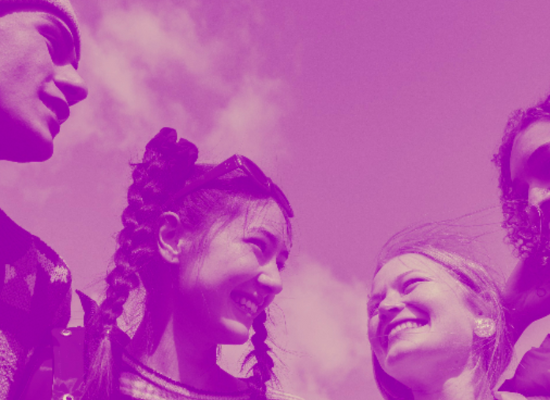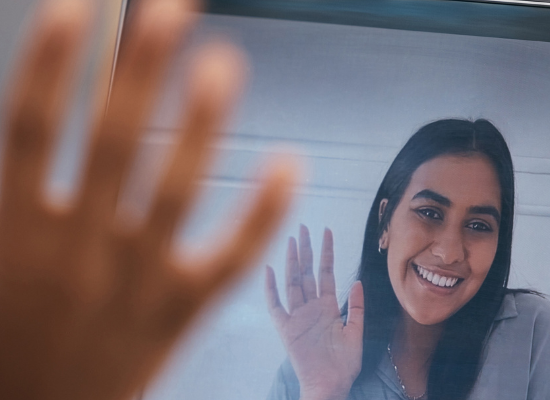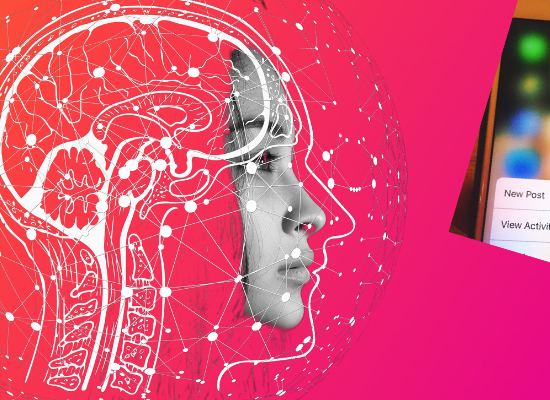
On the heels of National Pride Month and a successful pilot program, the 988 Suicide and Crisis Lifeline announced in July 2023 the expansion of specialized 988 services available through 24/7 call, chat, and text services for young people who identify as lesbian, gay, bisexual, transgender, queer, and other sexual orientation or gender identity minority groups (LGBTQ+).
According to a Substance Use and Mental Health Services Administration (SAMHSA) report released in June 2023 on the behavioral health of people who identify as lesbian, gay, or bisexual, sexual minorities have higher rates of suicidal thoughts and behaviors than those who identify as heterosexual or straight. Rates of suicidal thoughts among LGBTQ+ youth have trended upward over the last three years. A 2023 survey conducted by The Trevor Project reported that 56% of LGBTQ youth who sought mental health care in the past year were not able to receive care.
“The data underscores the disparities in access to mental health care and systems of support among LGBTQ youth,” said a spokesperson for The Trevor Project in a written statement.
Following an initial investment of $7.2 million by SAMHSA, Vibrant Emotional Health, administrator of the 988 Suicide and Crisis Lifeline, launched a specialized LGBTQI+ pilot program for 988 contacts. From September 2022 to February 2023, LGBTQI+ young people contacting 988 were connected to counselors trained to understand and support their crisis needs. These specialized LGBTQI+ services were integrated into the 988 Lifeline through the pilot program via a “press 3” phone tree automated option like the “press 1” option available for veterans and the “press 2” option available for Spanish speakers.
During the initial pilot, Vibrant reported an increase in the need for 988 LGBTQ+ services, which accounted for about 6% of all 988 calls and 11% of chats and texts routed to the 988 Lifeline network totaling about 138,000 contacts (68,000 calls; 31,000 chats; and 39,000 texts). Given the success of the initial pilot program and with an additional $29.7 million in federal appropriations, Vibrant expanded its subnetwork of specialized LGBTQI+ crisis counselors pilot in March to offer 24/7/365 call, chat, and text access (previously chat and text were only available 3 pm to 6 am ET); and in July 2023, Vibrant officially announced the LGBTQI+ subnetwork expansion.
As the executive director of Suicide Prevention and Crisis Services (SPCS) in Ithaca, NY, Tiffany Bloss has first-hand knowledge of the importance of crisis care access for LGBTQ+ 988 contacts and the greater LGBTQ+ community. The nonprofit is the regional crisis contact center for the 988 Suicide and Crisis Lifeline, serving 17 counties in New York and operating the local crisis line for Tompkins County residents.
“Our callers say, ‘I can’t live, I can’t be me.’ It’s not ok for someone to not feel confident in who they are and live authentically,” shares Bloss.
She applauds the advocacy efforts of organizations that secured SAMHSA funding for the Vibrant LGBTQI+ specialized services and SAMHSA and Vibrant’s efforts to ensure a direct pathway via the “press 3” option for 988 callers to connect to 988 LGBTQI+ -trained crisis counselors.
“It is important that 988 contacts do not need to explain themselves nor educate the counselor on their unique needs,” reflects Bloss.
Even before Vibrant’s designated LGBTQI+ “press 3” routing option, SPCS utilized a holistic approach to promote safety, acceptance, and an LGBTQI+-affirming space for their clients, employees, and the broader community. “A big focus for us is providing essential skills for our counselors to enable them to use the correct terminology, meet people where they are, and validate the pain and angst of individuals not being able to live the way they want to live,” shares Bloss. She emphasizes that 988 contacts have reached out in one of their most vulnerable moments, even though they are unsure that the crisis counselor is an understanding person for them to talk with and to trust. SPCS staff are trained to start the process of building trust by sharing that SPCS is a non-judgmental, confidential, and anonymous service.
To appropriately serve contacts that identify as part of the LGBTQI+ community and ensure staff are competent to handle these contacts, SPCS has arrangements with local LGBTQI+ organizations to train SPCS’s counselors during onboarding. The initial 180 hours of 988 counselors’ training includes components on LGBTQI+ terminology, statistics, videos, and hearing directly from individuals with lived experience. It also includes staff members sharing their own stories and offering education and resources to other counselors. SPCS prioritizes keeping counselors updated on contacts’ experiences to help them better relate and provides 4-8 hours of continuing education weekly. Bloss further explains, “We conduct role-plays internally to make staff much more comfortable with conversations. Once the folks on the phones realize we understand…. that immediately builds trust and rapport.”
Bloss observes a new generation of youth in Ithaca’s grade schools and colleges who are more open and proud of who they are, which in turn has empowered individuals from previous generations to be themselves as well. “There has definitely been a societal shift toward affirmation of LGBTQI+ identities in the last couple of years that has offered a freedom for people to be who they authentically are instead of believing that they need to hide because of stigma and judgment,” reflects Bloss.
This societal shift has not gone unnoticed by older generations who have grown up suppressing their identity but now see new possibilities to live authentically. “It is very powerful to see this open-mindedness in callers as well as formation of support systems and social groups.”
SPCS is located in a community that is very accepting of all types of people and which encourages self-exploration and expression. SPCS staff reflects the diversity of the community, and some staff members are willing to share stories about their own experiences as an LGBTQI+ individual. Personal impact stories, statistics, and other education on LGBTQI+-related topics have the power to change people’s entrenched opinions and viewpoints.
Education with a focus on acceptance is an important element of SPCS’s community-wide training and engagement. Bloss shared, “Often when people feel they are being treated with prejudice, it is because of a misunderstanding. So, we try to help educate folks on acceptance…People have every right to be who they want to be, so we try to help others and understand how they move toward self-determination.”
Amidst the increased openness and acceptance of different identities among younger generations, there has also been a counter-balancing increase in targeting LGBTQ+ individuals within the political landscape. LGBTQ+ advocates report that a record number of state legislatures passed anti-LGBTQ+ laws in 2022. According to the Human Rights Campaign, 315 anti-LGBTQ+ bills were introduced, with 29 bills being signed into law. In contrast, there were 156 bills introduced in state houses pertaining to LGBTQ+ equality and anti-discrimination of which 23 became law. LGBTQ+ advocates such as The Trevor Project and the Human Rights Campaign predict that anti-LGBTQ+ discrimination trends will continue driving state policies in the future.
In addition to their work in supporting LGBTQI+ young people during a 988 interaction, SPCS conducts research to find appropriate referral services in both local and national programs, such as the Trevor Forum for younger persons. It is important to understand the services to ensure that they will be supportive of that individual’s needs. Exploring alternative options, such as virtual and non-local, for those individuals who are hesitant to connect is also an important part of the center’s work.
“We have a long list of local therapists who specialize in supporting the LGBTQI+ community because it’s important for people to have an especially supportive ally,” notes Bloss. This can be a challenge, but people want and deserve providers that understand their needs. When a provider organization is a good fit for LGBTQI+ individuals, SPCS assists with publicizing their services so clients have both choices among providers and comfort knowing they will be safe and feel comfortable.
When asked about her thoughts on the launch of Vibrant’s LGBTQI+ specialized services for 988, Bloss expressed, “I am very excited that people will have a place to turn to… this specialized service will facilitate a change in education as well. This is a great thing! I am hoping that these changes will facilitate a shift in society toward more acceptance.” Through testimonials and education, outlining counselors’ training, and transparency in creating a safe and supportive environment, the 988 system will improve its reach and the quality of services for individuals in the LGBTQI+ community throughout the country.
Note: For this article, LGBTQ, LGBTQ+ and LGBTQI+ are umbrella abbreviations being used to encompass a range of gender-inclusive identities and expressions including asexual, pansexual, two-spirit, and additional sexual orientations and gender identities.
This article is reported and written in collaboration with the National Association of State Mental Health Program Directors (NASMHPD) and Vibrant Emotional Health—the nonprofit that operates the SAMHSA-funded 988 Suicide & Crisis Lifeline.








